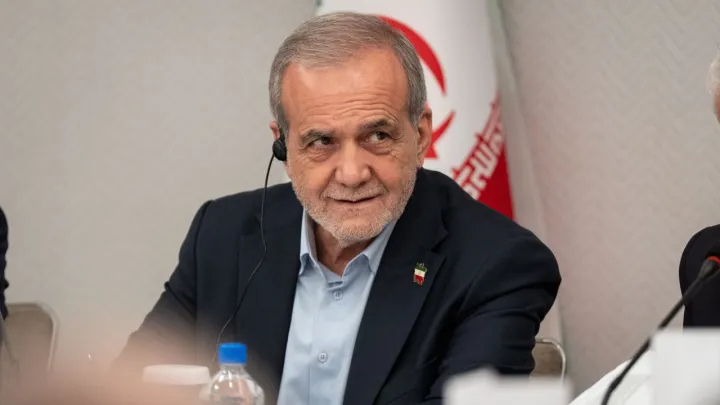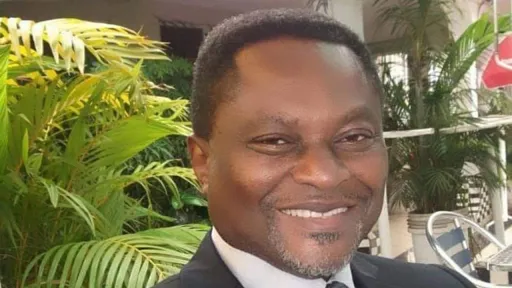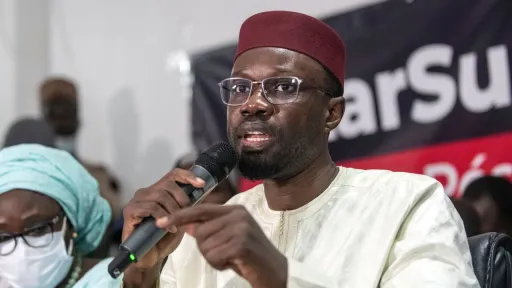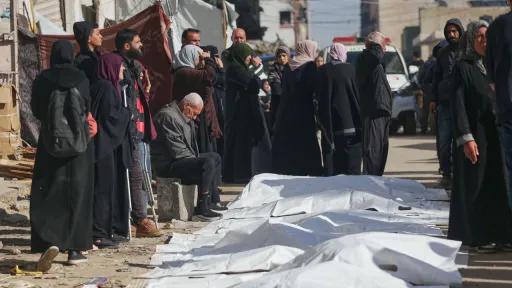By Abdulwasiu Hassan
Twenty-four years ago – on September 9, 1999 – African heads of states assembled in the Libyan city of Sirte for an epoch-making event in the continent's history that would set the stage for a collective march towards shared goals.
Till then, the Organisation of African Unity (OAU) had been the face of solidarity of purpose within a continent characterised by diversity of geography, social demography, politics and culture.
The Sirte Declaration was, at its core, the cornerstone of what the world knows today as the African Union (AU) — an organisation that was officially launched in 2002 to replace OAU as the fountainhead of greater unity and solidarity among African countries and their people.
The Sirte Declaration was the outcome of the African leadership's acknowledgement that the continent needed a new organisation that would be better suited to face the challenges of the time, including fulfilling the aspirations of a clutch of member countries that were no longer under direct colonial rule.
Another thing African leaders were looking forward to was acceleration of the process of political and socio-economic integration in the continent.
Journey so far
The anniversary coincides with a milestone in AU's history - its admission into G20 during the world's major economic bloc's summit in India.
Although AU remains committed to the roadmap drawn by its founding fathers almost a quarter of a century ago, many analysts believe more needs to be done.
One of the important steps taken by AU is ensuring that most African countries signed the Africa Continental Free Trade Agreement in 2018.
The thesis that drives the free trade agreement is the promise of lifting millions of people out of poverty and expanding incomes within the continent by US $571 billion by 2035, according to a piece of research by the World Bank.
The study also notes that African countries currently trade more with the rest of the world than with each other.
Analysts cite data points like these as being reflective of how AU could do better in many respects.
"The truth is that we have not made the progress that we were hoping to make," Mahmud Jega, a veteran Nigerian journalist, tells TRT Afrika.
"We were hoping that Africa would look something like the European Union by now – total economic integration, possibly with a single currency; probably a single passport so that movement between various African countries does not require visas, and other acts of integration."
He points out that while parts of the continent such as West Africa and even Southern Africa have made concerted efforts towards integration, there isn't much to recommend elsewhere.
"To some extent, the Maghreb states have also been able to achieve a certain level of integration. But integration of the continent as a whole? Honestly, we are still very, very far from that," says Jega.
Prof Kamilu Fagge of Bayero University, Kano, echoes these sentiments. "When OAU transformed into AU, there were high hopes that the latter will be able to achieve more than what OAU did in its history, especially on the issue of African unity," he says.
"The idea was that AU was likely going to be along the lines of the European Union. But except for that political agreement, it hasn't been able to forge the unity people expected it to do."
Coups d’état and instability
The continent has been in the news lately because of a resurgence of coups d’état and political instability, with no fewer than 10 coups or attempted military takeovers besieging the continent from 2020 till date.
As the coup contagion spreads to the latest country, Gabon, observers say more needs to be done to stem the tide of unconstitutional change of government.
"How AU can curb coups and ensure political stability on the continent is really the biggest challenge of today," says Jega.
"So many coups – in Guinea, Mali, Burkina Faso, Niger, Sudan, and now in Gabon – is a very worrisome sign that is linked to other problems. These include economic problems, the levels of poverty across the continent, and also the fact that liberal democracy never really took hold in the continent."
Jega explains that democracy is more than just elections being held from time to time in many African countries.
"Almost every country where elections are held — be it Kenya, Sierra Leone, Niger or Gabon – there are allegations of rigging, bribery, subversion of the people's will, and this and that," he tells TRT Afrika.
Lifting of term limits by some elected African leaders is seen as an example of subversion of the people's will, something that observers feel AU should be standing up against.
Prof Fagge says AU should try to diplomatically talk to any leader, civilian or otherwise, indulging in acts that threaten democratic principles.
“So, I think AU should look in that direction and see if we as Africans are struggling to maintain democracy. Whoever violates it in terms of changing the constitution, tenure elongation, intolerance towards opposition – all these are threats to democracy."
Instability in some African countries are some of the challenges analysts believe AU needs to tackle with a degree of certainty.
"The worst case we have right now is Sudan, which is almost going the way of Somalia, with fighting between two military factions for over three months now. With people dying by the thousands, this is a big problem indeed," says Jega.
Foreign influence
The erstwhile OAU may have played its part in freeing many African countries from the shackles of colonialism, but the legacy of foreign powers trying to influence things in the continent continues to fester.
Of late, there has been renewed interest in Africa from foreign powers in search of both influence and economic opportunities.
Analysts believe AU needs to be pragmatic in handling foreign interests in the continent, with some saying that collective bargaining is the way African nations can get the best out of their dealings with foreign powers.
"Although the whole of Africa has been independent for several decades now, we have found it difficult to overcome the obstacles that were planted in our paths by the colonial powers, especially the way they structured economic relations between our countries and theirs," says Jega.
He is of the view that if the continent is able to develop economically, then it might start weaning itself off "neo-colonial relationships that the foreign powers built even after they departed".
Prof Fagge concurs, saying that the continent needs to be more self-reliant.
"We shouldn't bank on external powers to solve our problems. We should do it ourselves. If they are coming to us, they are coming to assist — not to issue directives like bosses do," he says.
As AU crosses another chronological milestone, a reflection on what could have been is tinged with hope that the future is still Africa's to claim.























